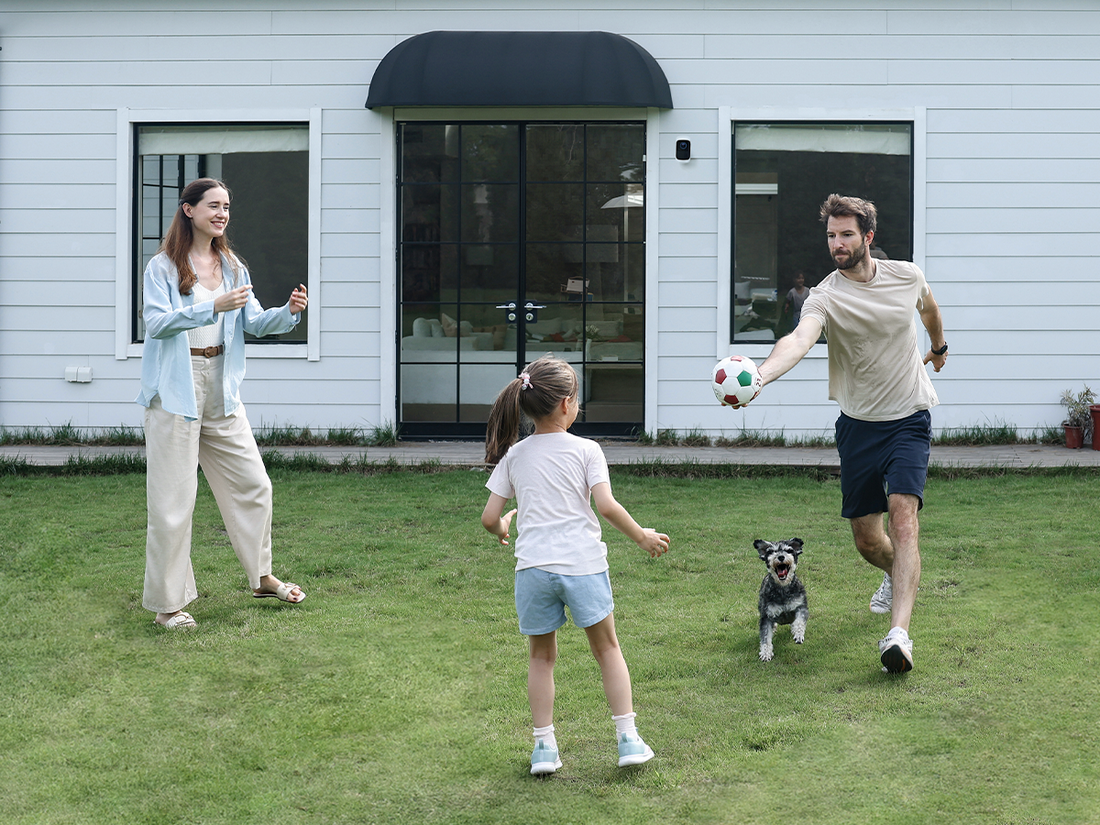Are Home Security Cameras Legal? (Rights & Responsibilities)

Security cameras have become increasingly popular for homeowners looking to enhance their property's security. However, it's crucial to understand the legal implications of installing these cameras.
In this article, we'll answer common questions about the legality of security cameras and provide practical advice for homeowners.
Is It Legal to Put Cameras Around Your House?
In general, it is legal to install security cameras on your property. However, you must ensure that the cameras are positioned to monitor your own property and do not infringe on your neighbors' privacy.
For example, pointing a camera directly into a neighbor's window can be considered an invasion of privacy and may lead to legal issues. To avoid potential conflicts, always ensure that your cameras focus on areas within your property boundaries, such as your yard, driveway, or entrance.
Do You Need Permission to Put Up a Security Camera?
Typically, you do not need permission to install security cameras on your own property. However, if you live in a community with a homeowners' association (HOA) or specific local regulations, you may need to follow certain guidelines.
HOAs often have rules regarding the installation of exterior fixtures, including cameras, so it's advisable to check with your HOA or local authorities to ensure compliance with any specific rules that may apply.
Do You Have to Tell People You Have a Security Camera?

While it may not always be legally required to inform others about your security cameras, it is considered good practice.
Informing people about the presence of security cameras can help respect their privacy and avoid potential legal issues.
A common approach is to use signage indicating that the area is under surveillance, particularly in shared spaces or where visitors might be recorded. This practice can deter potential intruders and helps maintain transparency with neighbors and visitors.
Is It Legal for Your Neighbor to Point a Camera at Your House?
Privacy laws generally protect homeowners from intrusive surveillance by neighbors. If you believe your neighbor's security camera is pointed directly at your house and invading your privacy, there are a few steps you can take.
Start by discussing the issue with your neighbor to seek a resolution. If the situation isn't resolved, you may need to consult local authorities or seek legal advice. In some cases, you might be able to address the issue through legal channels if the surveillance is deemed an invasion of privacy.
3 Practical Considerations

To ensure your security camera setup is both legal and ethical, consider the following tips:
1. Position Cameras Carefully
Ensure cameras are focused on your own property and do not capture areas where neighbors have a reasonable expectation of privacy, such as their windows or private yards.
2. Use Signage
Inform visitors and passersby about the presence of security cameras with clear signage, especially in areas where they may be recorded.
3. Review Policies
Regularly review and update your security camera policies and practices to stay compliant with local laws and ethical guidelines.
Legal and Ethical Considerations
Staying informed about local laws and regulations regarding security cameras is crucial. Additionally, respecting the privacy of neighbors and visitors is important for maintaining good relationships and avoiding legal issues
Balancing your need for security with the rights of others to privacy is key to ensuring your surveillance efforts are both effective and lawful.
Implications of Hiding Security Cameras
Hiding security cameras can be a strategic choice for reducing tampering risks and maintaining home aesthetics.
There are various ways to conceal cameras, such as integrating them into everyday objects like birdhouses, plant pots, or garden gnomes.
However, hiding cameras comes with legal responsibilities. It's important to ensure that hidden cameras comply with local privacy laws and do not infringe on the rights of others. Before installing hidden cameras, consider the legal implications and whether their use is justified in your situation.
Conclusion
Installing security cameras can significantly enhance your home's security, but it's essential to understand the legal and ethical implications. By following local regulations and respecting privacy, you can ensure your security measures are both effective and lawful.
At Safemo, we offer security cameras designed to help homeowners protect their properties responsibly and effectively. Find out more in the Safemo Shop.
For more detailed information on security camera regulations, be sure to consult your local authorities or legal advisors. To learn more about security camera options and best practices, check out our related articles on hidden vs visible security cameras and DIY hidden camera ideas.